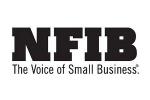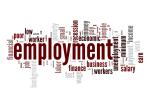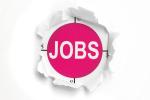WASHINGTON — The National Federation of Independent Business (NFIB) Small Business Optimism Index declined by 1.6 points in April to 95.8, the second consecutive month below the 51-year average of 98.
The Uncertainty Index decreased four points from March to 92 but remained far above the historical average of 68. Seasonally adjusted, 34% of small-business owners reported job openings they could not fill in April, down six points from March. The last time job openings were below this level was in January 2021.
“Uncertainty continues to be a major impediment for small-business owners in operating their business in April, affecting everything from hiring plans to investment decisions,” says NFIB Chief Economist Bill Dunkelberg. “While owners are still trying to fill a high number of current job openings, their outlook on business conditions is less supportive of future business investments.”
Key Findings
In the NFIB’s monthly jobs report, of the 56% of owners hiring or trying to hire in April, 85% reported few or no qualified applicants for their available positions. A seasonally adjusted net 13% of owners plan to create new jobs in the next three months, up one point from March.
Labor costs, reported as the single most important problem for small-business owners, fell three points in April to 8%.
Seasonally adjusted, a net 33% reported raising compensation, down five points from March. A seasonally adjusted net 17% plan to raise compensation in the next three months, down two points from March.
Fifty-eight percent of owners reported capital outlays in the last six months, down one point from March and the first decline since September 2024. Of those making expenditures, 40% reported spending on new equipment, 25% acquired vehicles and 16% improved or expanded facilities. Fourteen percent spent money on new fixtures and furniture and 6% acquired new buildings or land for expansion.
In April, the percentage of small-business owners reporting “poor sales” as their top business problem remained at 9% for the fourth consecutive month. A net negative 8% of all owners (seasonally adjusted) reported higher nominal sales in the past three months, up three points from March and the highest reading since September 2023.
Seasonally adjusted, a net 28% planned price hikes in April, down two points from March. The net percent of owners raising average selling prices fell one point from March to a net 25%, seasonally adjusted. Unadjusted, 11% of owners reported lower average selling prices and 39% reported higher average prices.
Three percent of owners reported that financing and interest rates were their top business problem in April, unchanged for the fourth consecutive month. Twenty-six percent of all owners reported borrowing on a regular basis, down two points from March. A net 5% reported their last loan was harder to get than in previous attempts, down one point from March. A net 6% reported paying a higher rate on their most recent loan.
Nine percent (seasonally adjusted) of owners reported that it is a good time to expand their business, unchanged from March and a historically low reading.
Taxes were ranked just below labor quality as the top issue, with 16% of owners reporting it as their single most important problem, down two points from March’s highest reading since November 2021. The percentage of small-business owners reporting government regulations and red tape as their single most important problem rose one point from March to 9%. Seven percent reported competition from large businesses as their single most important problem, up one point from March.
The NFIB Research Center has collected Small Business Economic Trends data with quarterly surveys since the fourth quarter of 1973 and monthly surveys since 1986. Survey respondents are randomly drawn from NFIB’s membership.
Have a question or comment? E-mail our editor Dave Davis at [email protected].

























































